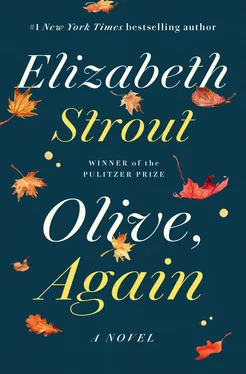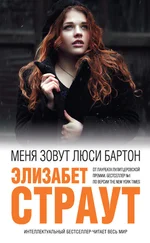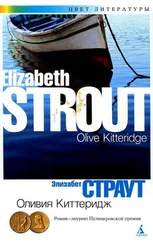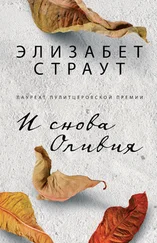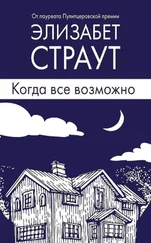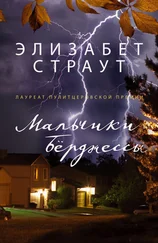Kayley Callaghan was a young girl in the eighth grade, and she lived in a small apartment with her mother on Dyer Road in the town of Crosby, Maine; her father had died two years earlier. Her mother was a petite, anxious woman, and because her mother had not wanted to rely on her three older daughters, all with families, she had sold the big house they had lived in on Maple Avenue to an out-of-state couple who found the price to be extremely cheap and who came up on weekends to renovate it. The house on Maple Avenue was near Kayley’s school, and every day she walked a block over so as to avoid going by the place where her father had died in the back room.
It was early March, and the day had been cloudy until just now; sunlight came through the windows of Kayley’s English classroom. Kayley, leaning her head on her hand, was thinking about her father; he was a man without higher education, but when she was small he had told her about the famine that took place in Ireland, and the Corn Laws that made bread too expensive to buy, he had told her many things; in her mind now she envisioned people on the streets of Ireland, dying, bodies falling on the side of the road.
Mrs. Ringrose was standing in front of the class with the vocabulary book, held with both hands, on top of her protruding chest. She said, “Use it three times and it’s yours,” which is what she always said when they were doing vocabulary words. Mrs. Ringrose was old, with white hair and glasses that wobbled on her nose; they were gold-rimmed.
“ ‘Obstreperous,’ ” Mrs. Ringrose said. She looked over the students seated at their desks, sunlight glinting off her glasses. “Christine?” And poor Christine Labbe could not come up with anything. “Um, I don’t know.” Mrs. Ringrose didn’t like that. “Kayley?” she asked.
Kayley sat up straight. “The dog was really obstreperous,” she said.
“All right,” Mrs. Ringrose said. “Two more.”
Kayley knew what most people in town knew about the Ringroses: At Thanksgiving they dressed up like Pilgrims and went around the schools in the state, giving talks on the first Thanksgivings in New England; Mrs. Ringrose always took two days off from teaching to do this, the only days she ever took off.
“The children playing were being really obstreperous,” said Kayley.
Mrs. Ringrose did not look pleased. “One more, Kayley, and it’s yours.”
Kayley also knew, because Mrs. Ringrose talked about this a lot, that one of Mrs. Ringrose’s ancestors had come over on the Mayflower ship from England many years ago.
Kayley closed her eyes briefly, then she finally said, “My father said the English people thought the Irish were obstreperous,” and Mrs. Ringrose glanced at the ceiling and snapped the vocabulary book shut. “Okay, I suppose that’s good enough. You now have the word, Kayley.”
Sitting in the classroom on the second floor while afternoon sun streamed through the windows, Kayley felt an emptiness in her stomach that was not hunger but a kind of vague nausea; the feeling—Kayley did not know why—had something to do with Mrs. Ringrose, whose first name was Doris.
Doris Ringrose, and her husband was named Phil. They had no children.
“See me after class,” Mrs. Ringrose said to Kayley.
A week earlier Kayley had come home from cleaning the house of Bertha Babcock—which she did every Wednesday after school—and heard her eldest sister, Brenda, speaking with their mother in the kitchen. Kayley had stood by the door in the darkened hallway, the staircase she had just come up was steep and wooden and lit by only one lightbulb, her backpack with her school books was unsteady on her shoulder, and she heard Brenda say, “But, Mom, he wants it all the time, and it’s kind of making me sick.” And her mother replied, “Brenda, he’s your husband, it’s what you have to do.”
Kayley hesitated, but they stopped talking then, and when she came in, Brenda stood up and said, “Hi, honey. What’ve you been up to?” Brenda was many years older than Kayley, and she used to be a pretty woman with her dark red hair and smooth complexion, but lately there were brown patches beneath her eyes and she had been gaining weight.
“Cleaning house for Bertha Babcock,” said Kayley, slipping her backpack off. “I can’t stand it.” She took her coat off and added, “I can’t stand her. ”
Lighting a cigarette, Kayley’s mother said, “Well, she can’t stand you either, don’t think otherwise. You’re Irish, you’re just a servant to her.” She dropped the match into the saucer of her teacup and said, directing this to Brenda, “She’s a Congregationalist, Bertha Babcock,” and gave her a meaningful nod.
Brenda tugged on her blue cardigan, but it wouldn’t meet in the middle across her stomach. “Still, it’s a nice thing you’re doing it.” She winked at Kayley.
“Mrs. Ringrose is going to ask me to clean her house now too,” Kayley said. “Mrs. Babcock recommended me.”
“All right then,” her mother said, as though she didn’t care, and she may not have.
“Another Congregationalist?” Brenda asked this playfully, and Kayley said, “I think so.”
Kayley went into her bedroom; the old wooden door never closed all the way, and as Kayley listened to the women talking—now in muted tones—she understood that this was about sex, her sister didn’t want to have sex with Ed, and Kayley didn’t blame her. He was okay, her brother-in-law, but he was a small man, and had bad teeth, and it made Kayley feel queer in her stomach to think that he wanted it all the time. Kayley sat down on her bed and thought she would never—ever—marry someone like Ed.
And she would never get old like Bertha Babcock, who was a widow, and whose kitchen floor was in black and white tiles, which Mrs. Babcock made Kayley clean with a toothbrush between the tiles each week; Kayley could not stand it. The Babcock house seemed to stink with a loneliness there would be no cure for.
—
Brenda came to the door of Kayley’s bedroom; the room was small, and lit now by the overhead light that shone on Kayley’s pink quilt, which lay messily on her bed, and as Brenda slipped on her coat she said to Kayley, “I have to get going, honey, the kids will need their supper.” Brenda lived two towns away. Then she said, “Mom says you’re still not playing the piano.” Brenda asked, conspiratorially, quietly, “Should she sell it, honey?”
Kayley stood up to give her sister a hug goodbye. “No, please don’t let her sell it.” Kayley added, “I’ll play, I promise.”
It was their father who had played the piano, although after Kayley learned to play he said he would rather listen to Kayley. “I love you, and I love the piano, so the combination just sends me to heaven,” their father had said, standing in the doorway of their old living room. That night Kayley sat at the piano, which was an old black upright. But she played badly because she almost never played anymore, and even the simpler sonatas of Mozart were not as easy for her as they had once been. Kayley put the lid down over the keyboard. “I’ll play more,” she said to her mother, who was sitting in the corner smoking a cigarette near the window she had cracked partly open, and her mother did not answer.
Kayley spent the rest of the evening in her bedroom, watching on her computer Martin Luther King, Jr., giving his “I Have a Dream” speech. This was an assignment for Social Studies class, but her father had told her about that speech as well.
Читать дальше
